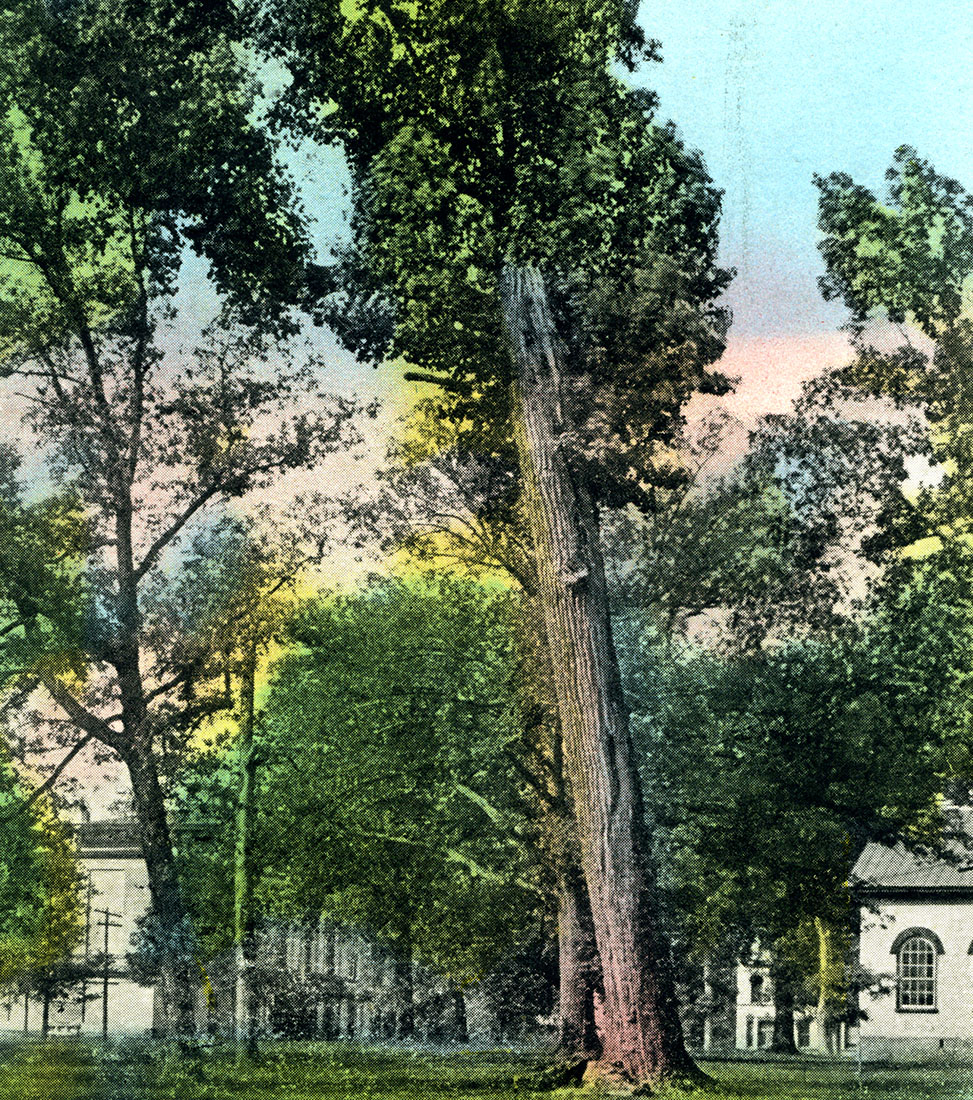Davie Poplar
The legendary tulip poplar at the heart of the UNC—Chapel Hill campus is older than the university. The earliest known reference to it is in the reminiscences of a member of the class of 1818. In his recollections of campus, he talks about the "old poplar," which shows that even in the university's first decades the tree was a landmark (and already considered old). The name Davie Poplar first began to be used in the 1890s, in honor of William Richardson Davie, whose early support has led many to call him the "father of the university." Cornelia Phillips Spencer is believed to be the one who named the tree for Davie.
The Davie Poplar used to be a popular gathering spot for students and a place to hold formal events, like the annual Class Day ceremony. The tree has seen some hard times. In 1902 a severe storm hit the campus and several large branches broke off. To the dismay of many alums, early newspaper reports said that the tree had fallen down in the storm. In 1918, fearing that the tree wouldn't last much longer, the Davie Poplar Jr., grafted from a branch of the original, was planted nearby. Throughout the years, there were continued concerns about the tree —both for its health and for the safety of the people passing underneath. In the 1950s a steel cable was put in place to attach the aging tree to stronger trees nearby, and concrete was used to reinforce the hollow interior of the Davie Poplar. In 1961 seven and a half tons of wood were trimmed from the tree.
The Davie Poplar was one of the focal points of UNC—Chapel Hill's 1993 bicentennial celebration. Public school students from each of North Carolina's 100 counties were invited to campus, each receiving a seedling from the Davie Poplar to plant in their home counties, symbolizing the statewide reach of the university and its ties to the public school system.

Postcard image of the "Old Davie Poplar," 1910. Durwood Barbour Postcard Collection, North Carolina Collection Photo Archives, Wilson Library.

